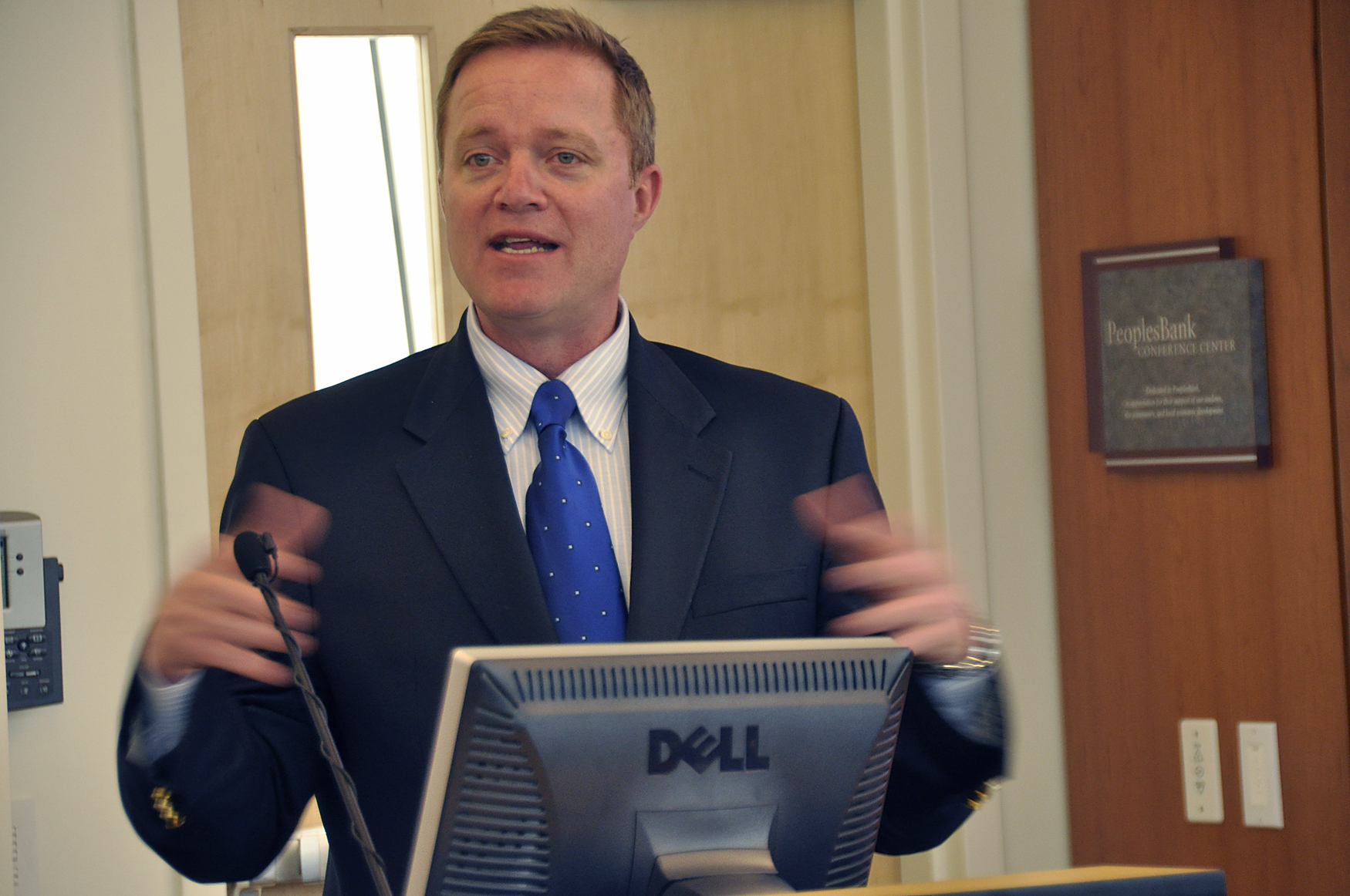At Monday’s event we heard from Dennis Culhane, Professor of Social Policy at the University of Pennsylvania and a recognized national expert on homelessness prevention strategies.
Dr. Culhane was commissioned by the Fireman Foundation to develop a white paper on ways in which the Commonwealth’s Emergency Assistance (EA) program could be redesigned to increase its effectiveness in preventing homelessness without requiring additional budget resources. The paper will be formally presented in Boston on May 11 (click here for event details), but we got an early look.
Dr. Culhane’s previous work on chronic homelessness has been very influential in creating the shift nationally to Housing First, and strongly influenced the City of Springfield to make the policy and practice changes that have enabled the City to reduce its rate of street homelessness by 70%.
On Monday, Dr. Culhane described the flaws in our current response to family homelessness: it is very expensive, with costs rising every year, and it does not lead to good outcomes for families. One of the major challenges of the current system is that it is “one size fits all,” and the only benefit provided is shelter.
The result is that shelter has become the goal, rather than one of multiple possible outcomes focused on maintaining or achieving housing stability. Dr. Culhane posits that the same resources we are currently spending could, if used differently, provide far better outcomes for families facing housing crisis.
Dr. Culhane recommends the following shifts in the current system:
- prioritize the goal of housing stabilization;
- make flexible resources available to reach that goal;
- customize services provided to each household; and
- use regional networks to maximize supports to help families stay housed.
Stay tuned for more on Dr. Culhane’s recommendations after the full white paper is released on May 11. I’ll be sure to report on the event, as I will be one of a handful of folks on a panel responding to Dr. Culhane’s recommendations.


